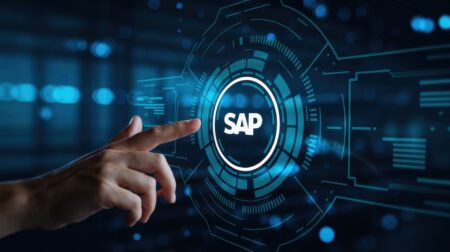
While we’ve all heard the old bromide about how past performance is no predictor of future results, we should be heartily encouraged by recent reports showing Snowflake revenue grew 84%, Workday 23%, and Salesforce 24% for the quarter ended April 30.
And in the incessant swirl of inch-deep recession hysteria pumped out breathlessly by the media and self-proclaimed “experts,” here are four more highly relevant factors to consider:
4 Key Factors of the Recent Revenue Growth
- While those numbers reflect the past and not the future — each covers the quarter beginning Feb. 1 and ending April 30 — all three of those companies were unequivocal in emphasizing that current and forward-looking demand from customers remains very strong.
In particular, Salesforce’s top four executives used their May 31 earnings call to pound home that point about ongoing high-level demand, and they did so a combined total of 20 times, which I spelled out in detail a few days ago in an analysis called Salesforce Execs Declare ‘Demand Still Strong!’ 20 Times in Earnings Call. - While Microsoft did indeed cut revenue guidance for its fiscal Q4 ending June 30, the company said absolutely nothing about softening demand from customers. But instead, it said the revision was due exclusively to adverse foreign-currency exchange rates driven by the strong dollar.
Salesforce made a similar revision for its next quarter and, like Microsoft, pinned the blame on the adjustment exclusively on currency-exchange headwinds, and made no mention whatsoever of slackening demand. Quite the contrary — as noted above, Salesforce executives were adamant from the beginning of their May 31 earnings call to the end that demand remains very strong. - Oracle will release its fiscal Q4 and full-year results within the next two weeks. I expect it will report cloud-revenue growth rates in line with, or possibly ahead of, competitors Salesforce and Workday.
On top of that, Oracle just received full regulatory approval to proceed with its $28-billion acquisition of digital health-records powerhouse Cerner, which will draw additional focus away from the doom-and-disaster ninnies and toward the extraordinary potential that highly capable and highly ambitious companies can generate here in the Acceleration Economy. - Because Snowflake, Salesforce, and Workday — and for that matter Oracle as well — all serve significantly different categories within the massive cloud industry, their strong fiscal-Q1 results plus their uniformly bullish outlooks indicate widespread confidence among buyers in the power of transformative modern cloud technology.
So, it’s not just a quirky case of three niche cloud vendors serving the same narrow slice of the market and reporting frothy numbers for an obscure sector. Indeed, each is deeply focused on helping customers do more with data, AI, analytics, customer-centric insights, and real-time decision-making.
The Terrible Cost of Fear
Because of all these market-based dynamics, I have chosen to recommend that each and every one of us should “Be Not Afraid” of what the near-term future holds for us. We need to be, as always, vigilant, responsible, and disciplined.
Each of those attributes also fits perfectly into an aggressive growth mindset: The vigilance to ensure we’re doing everything possible to exploit massive opportunities; the responsibility to make the decisions required to be a market leader rather than just amble along in the middle of the pack while hoping not to be picked off from the fringes; and the discipline to stay focused on the breathtaking potential that exists in our profoundly changed — and changing — world.
So:
- Being afraid of what tomorrow might bring will ensure that we miss those opportunities.
- Being afraid of what might happen if we break from the pack and choose our own way forward will guarantee us results that are, at best, mediocre.
- Being afraid because some slicked-up genius in some TV studio says the sky is falling, or is going to fall, or will probably fall, or might fall — but he can’t remember the details — well, that means the future is chiseled in stone and you can’t change it, so why bother trying?
- Being afraid suppresses those richly human qualities that are driving dazzling innovations in every facet of our lives; it relegates us to dreary days filled with little more than the meager hope that we might somehow eke out a way to be a little less crappy than our weakest competitors.
- Being afraid means forsaking joy, adventure, optimism, possibility, and the chance to chase our dreams.
Let’s all say “hell no” to all that.
Let’s commit to “Be Not Afraid.”
Want to gain more insights from Cloud Wars Expo?
Starting on July 20th, more than 40 hours of on-demand cloud education content will be available for free to Acceleration Economy Subscribers.










